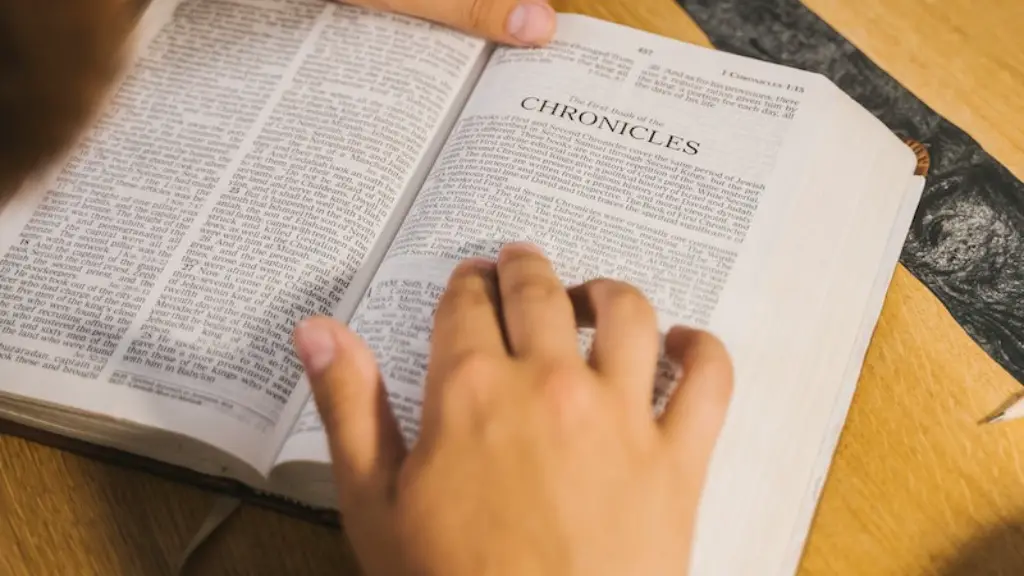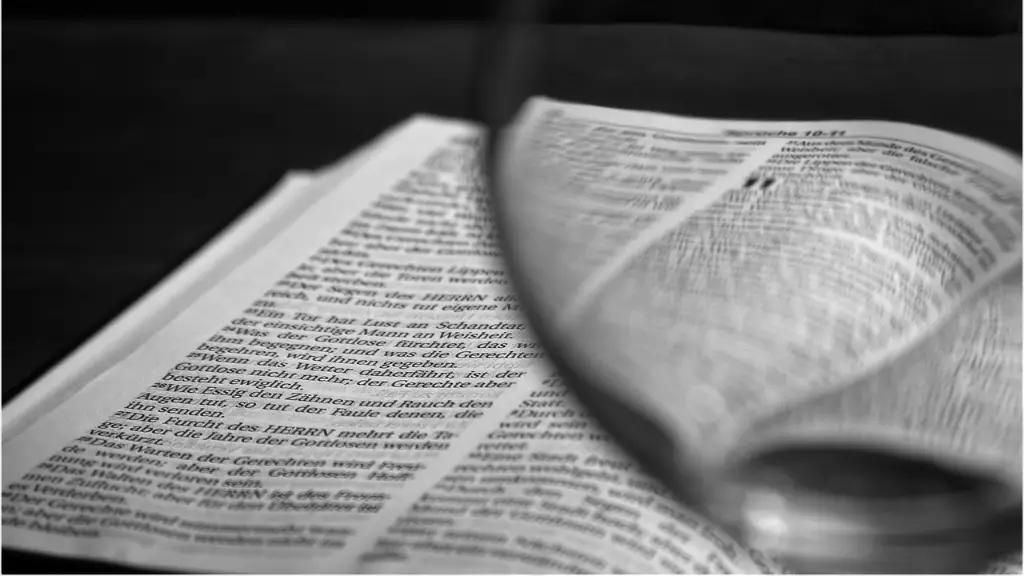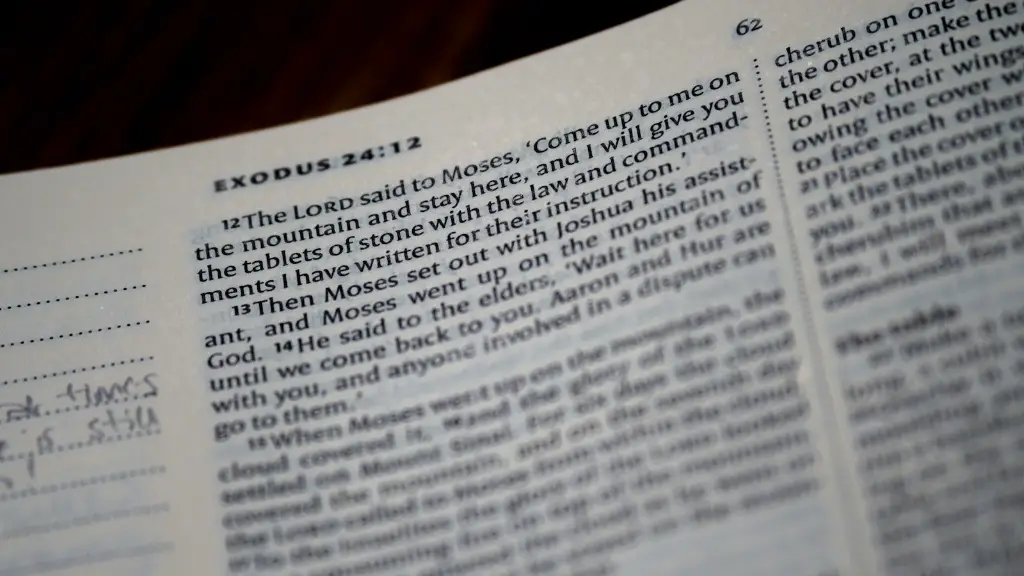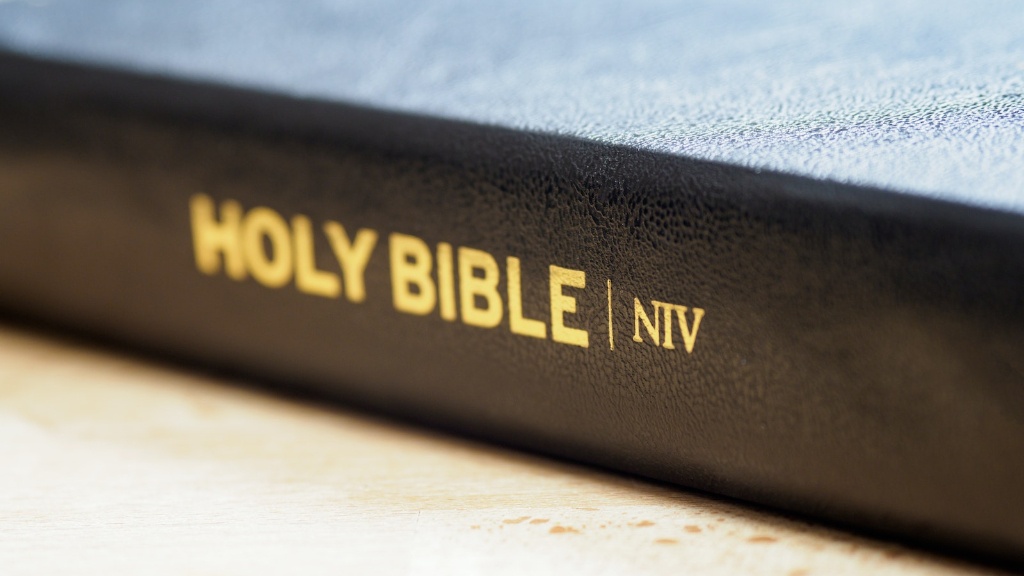Introduction
Omer is mentioned many times in the Bible, forming part of an important Jewish tradition. The concept of Omer dates back thousands of years to the time of Moses and the Hebrews in the Sinai desert. The Omer is the period of time between the two annual Jewish holidays of Passover and Shavuot. During this time, the Jews count forty-nine days as a way of remembering the people of Israel’s journey from slavery in Egypt to freedom in the Promised Land. Some Jewish people practice a form of countings of the Omer named Sefirat Ha-Omer, which is the traditional act of counting down the days from Passover to Shavuot. In the Bible, the Omer is a way of remembering significant events in the history of the people of Israel, and a powerful symbol for each of the participants.
Background
The Omer is described in the Bible in the book of Leviticus, which begins with the commandment: “And you shall count off seven weeks… they shall be complete.” (Leviticus 23:15) In the Jewish tradition, these seven weeks make up the Omer, during which time Jews commemorate the period of time between the Exodus out of Egypt and the reception of the Ten Commandments. The biblical commandment to celebrate the Omer is interpreted as the beginning of the harvest season and the Exodus into the Promised Land, with subsequent festivals of the year tied to the agricultural cycle and the various harvests.
History and Significance
The Omer is a tradition rooted in the ancient Hebrew scriptures, and a significant part of the Jewish faith. It is celebrated by millions of Jews around the world, and for millennia has been one of the primary holidays of the year. The holiday is a time for prayer and reflection on the stories and narratives surrounding the Exodus, the history of the Jewish people, and the special relationship between God and the Jewish faith. And the counting of the Omer commemorates the transition from slavery to freedom, from dependency to self-determination, from chaos to order, from darkness to light.
Rituals and Traditions
Each day during the Omer period, Jews count another day on the Omer, with a special blessing. This practice is known as Sefirat Ha-Omer, and is typified by the saying of a blessing and the recounting of the day that has passed and the days that have yet to come. This practice was established around 2000 years ago, and is still observed today, even by non-Jewish people. During the Sefirat Ha-Omer, the participants join in reciprocal bowing and exchange blessings each day while chanting the day’s tally. In some cases, it is celebrated as a family event, with family members and participants joining together to count the days and bless one another.
Symbology and Context
The Omer is a powerful symbol of the passage of time and the transition between phases in life. For example, the Omer period corresponds to the transition of winter to spring, and the preparation of the land for harvests. And in a spiritual sense, it is a period of personal growth and spiritual readiness, and a time for spiritual renewal and preparation for the great festivals of Passover and Shavuot. Furthermore, Judaism teaches that each of the seven weeks (or seven days) of the Omer period correspond to a specific spiritual quality, such as strength, joy, humility and love. Thus, the Omer is seen as a time of spiritual development and personal growth.
Symbic Influence
The symbolism of the Omer has had a significant impact on the modern world. For example, the story of the Exodus of the Hebrews from Egypt has been used as a powerful symbol for a range of causes, including the civil rights movement and the fight against slavery. Furthermore, the Omer serves as the backdrop for the long-standing rivalry between the Jewish and Arab faiths, which has its roots in the stories of the Exodus and liberation. Ultimately, the Omer serves as a timely reminder of the need to respect and appreciate diversity, while also respecting the shared traditions of the two faiths.
COVID-19 Context
The COVID-19 pandemic has caused many changes in how we celebrate the Omer. For instance, many institutions have moved their rituals and conventions online, in order to keep crowd sizes down. With the pandemic still ongoing, people are turning to the time-honoured tradition of the Omer for comfort and solace during this difficult time. During the Omer period, Jewish people around the world practice their religion in the comfort and security of their own homes, and many are using the period as an opportunity for spiritual reflection and connection.
Final Reflections
In conclusion, the Omer period is a powerful symbol of the history of the Jewish faith, and a time for personal growth and spiritual renewal. It is also a time for Jews to remember the customs of the past and to reflect on the stories that have shaped the way we live today. The Omer period is a reminder of the fragility of life, while also serving as a reminder that through faith, resilience and perseverance, anything can be achieved.
Spiritual Growth
The idea of the Omer is spiritually profound in that during its 49-day duration, there are seven symbolic weeks corresponding to personal growth, with each day being associated with a particular characteristic that one should attempt to embody. For example, the days of the week of pride and joy are associated with feelings of joy and contentment, whereas the days of the week of humility are associated with feelings of humility and reverence. This is because the Omer period is seen as a period of spiritual growth, during which time individuals are able to become closer to God and reject the evils of the world.
Effect on Communities
The symbolism of the Omer has become so significant that communities around the world have been profoundly influenced by its presence. For example, the story of the Exodus has been used as a powerful symbol for the African American civil rights movement, as it speaks of the fight against oppression and the quest for freedom. Additionally, the Omer period has been turned into a national holiday in various countries, and has been used to symbolize the perseverance and determination of the people of Israel. As such, the Omer is an ever-present reminder of the power of resilience and faith, and of our responsibility to each other.
Modern Rituals and Traditions
Today, the Omer period is still practiced in different ways around the world, although modern technology and globalization has had an effect on how people celebrate it. For example, there are now apps and websites that allow people to keep track of the days of the Omer, and people from all around the world can join together in virtual Omer countings, in which they recite the day’s tally and exchange blessings. Furthermore, the Omer can also be celebrated with traditional holidays like the observance of Shavuot and the recitation of Psalms and the chanting of spiritual songs. As technology continues to evolve, so too do the ways in which we celebrate the Omer period.
Simulation and Visualization
The digital age has also had an impact on how we celebrate the Omer period. For example, there are now many websites and applications that allow people to join online simulations of the Omer period, in which they can observe the progress of the counting and reflect on the symbolic meaning associated with each day. Additionally, there are now visualization tools and websites that allow for animated presentations of the Omer period, enabling individuals to engage with the holiday in a more interactive way.
Conclusion
The Omer remains an important part of Jewish tradition, and a powerful symbol for the people of Israel. The Omer period is seen as a time for spiritual growth and renewal, as well as a reminder of the shared history that binds all Jews together. Today, the Omer period is celebrated in a range of traditions, and has been adapted to fit within the modern world. Through technology, the Omer period is now a more accessible experience, allowing people all over the world to join in the celebration.



